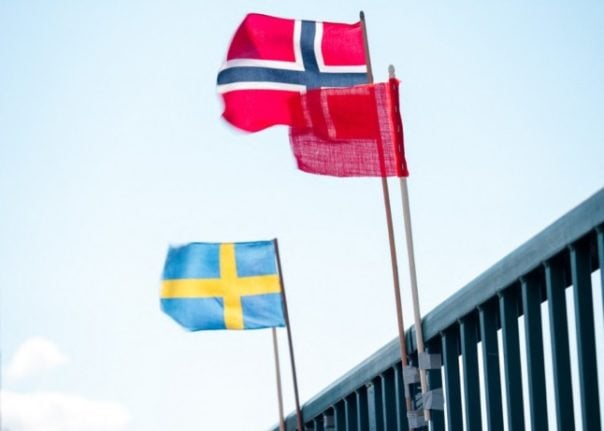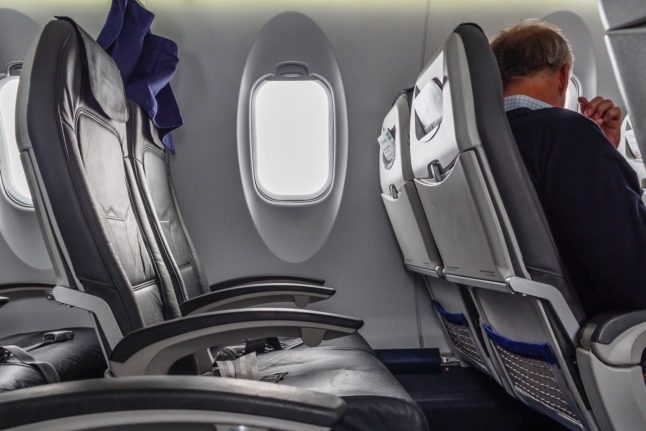What does harryhandel mean?
There’s no doubt that if you’ve spent any amount of time in Norway, you will have seen or heard the term before.
The term harryhandel started as slang for cross border shopping trips into Sweden. Most directly, it’s translated as “tacky shopping”.
The term was coined by former agriculture minister Lars Sponheim in 2002 when he said cross-border shopping trips to neighbouring Sweden was “harry“, tacky or tasteless.
These days the term has been adopted by the public and media in Norway and, for the majority, no longer carries any stigma, but if you prefer to be more proper, you can say Grensehandel instead.
Harrytur, cross-border shopping trips, are incredibly popular in Eastern Norway, where Norwegians make regular trips into Sweden.
The majority of those who go shopping across borders in Norway will do so in Sweden. However, in the north, some will also venture into Finland or Russia if they wish to bag a bargain.
Further south people will also travel to Germany or Denmark if they want to get a good deal.
Why do people do go border shopping?
Simply put, this is because it is much cheaper to cross the border into another country and shop there than in Norway.
Norway’s EEA agreement with the EU means that most foods, drinks, tobacco products, alcohol and other agricultural products are more expensive than they are within the EU as custom duties are required to import them into Norwegian supermarkets.
Not just that, but there is a much wider selection of products than in Norway due to laws that protect Norwegian products.
What do Norwegians buy?
What Norwegians buy will depend on where they are going. Generally, though, they will purchase all manner of things from candy to cognac.
When Norwegians travel to Sweden or Denmark, they do so for meat, spirits, wine, sweets, chocolate, beer, and petrol.
Norwegians will travel specifically to Sweden to satisfy their sweet tooth, pick up some cheap hooch or purchase cut-price snus or cigarettes.
READ ALSO: What is snus and why do so many Norwegians use it?
Those going to Russia do so for cheap alcohol and building materials but will need to spend at least 24 hours in Russia before bringing the goods back with them.
Germany lures bargain-hunting Norwegians hoping to save a pretty penny on beer and wine to its shores due to its low alcohol prices.
Are there any limits on what you can buy?
Yes, there are quotas on specific products and the overall value of the purchases you make before paying taxes when bringing the products back into Norway.
The quotas are up to 1 litre of liquor and 1.5 litres of wine or 3 litres of wine alone, and 2 litres of beer (or 5 litres of beer alone), as well as 10 kg of meat and 200 cigarettes or 250 grams of other tobacco products, and 200 sheets of cigarette paper.
In addition to this, the maximum import value is 6,000 kroner for stays over 24 hours and 3,000 kroner for visits under 24 hours.
Why are these trips important?
The trips aren’t just important to those in Norway looking to save a few kroner. The trips are critical to local economies in Sweden.
In 2019, the last year where harryhandel was not disrupted by the pandemic, Norwegians spent 16.6 billion kroner during border shopping trips, according to Statistics Norway.
Coronavirus pandemic restrictions have left a black hole in some of these economies. For example, in Strömstad, a Swedish town close to the border where many travel to shop, unemployment rose by around 75 percent after Norway closed its borders with Sweden.
Useful vocab
Harryhandel – border shopping in Sweden
Jeg skal bare harryhandel i Sverige til helgen, vil du bli med?
I am going border shopping in Sweden this weekend, would you like to come?
En kompis sparte masse penger på harryhandel i Sverige.
A buddy of mine saved lots of money going border shopping in Sweden.
Harrytur – shopping trip to Sweden
Vi skal på harrytur til Strömstad for å kjøpe svensk smågodt!
We are going on a shopping trip to Strömstad to buy Swedish candy!



 Please whitelist us to continue reading.
Please whitelist us to continue reading.
Member comments